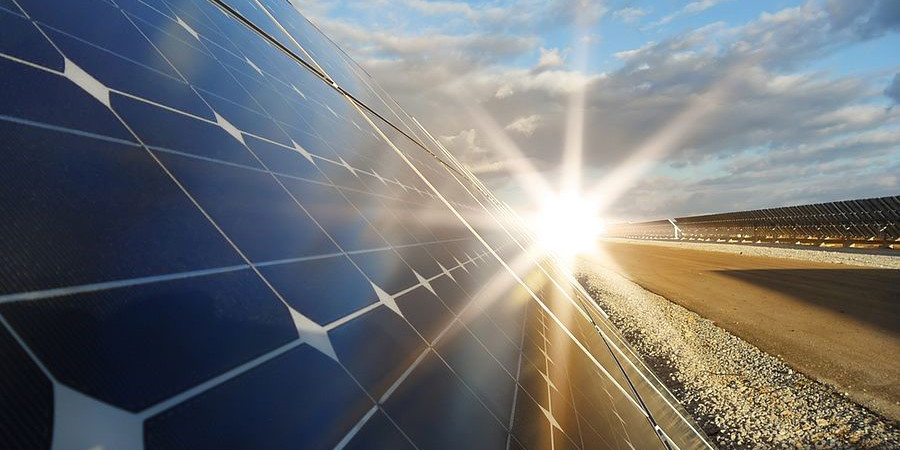For India to reach its renewable energy goals, companies in the sector will need to fund capacity expansion with massive amounts of capital at competitive rates. A new report from the Institute for Energy Economics and Financial Analysis (IEEFA) looks at how this can be done by augmenting traditional financing structures and sources with other channels such as green bond issuances, asset monetization, and capital recycling initiatives.
The report examines in detail the positions and potential of three major players in India’s renewable energy sector, each with ambitious clean energy plans: NTPC, a government-owned utility transitioning to green energy; Adani Green Energy Ltd (AGEL), a privately owned pure-play renewable energy company planning to rapidly ramp up its capacity; and Tata Power, a private utility pivoting to renewables.
“The capacity expansion plans of NTPC, Tata Power, and AGEL will require major financing drives to keep on track to meet renewable energy goals,” says report author an IEEFA energy finance analyst Shantanu Srivastava.
The report compares the capital structure changes of the three companies, explains their funding sources for capacity expansion in the past, and identifies trends that will shape the major industry players’ futures.
Overall, NTPC’s Government of India parentage makes it easier to tap a diverse set of investors, but its predominantly thermal power asset base is increasingly a hindrance in global capital markets, according to the report.
AGEL, the largest solar power company in the world, has capitalized exceptionally well on its green profile, evident from its high market capitalization, asset monetization, and bond lending program.
Tata Power, to its credit, has been able to pare down debt, which improves debt raising capability in the future, but the company lacks patient global pension/corporate capital on its books, says Srivastava.
“A large proportion of India’s renewable energy capacity will be added by the largest players already operating in the industry, given the capital-intensive nature of the business,” he says.
Funding avenues
There is a flood of global capital vying for opportunities to invest in zero-emissions infrastructure assets, driven in part by the rise of sustainable finance and environmental, social and governance (ESG) investing.
“India [with its installed renewable capacity target of ‘450 GW by 2030’] presents attractive prospects for these investors to deploy capital and gain exposure to the country’s growing renewable energy sector,” says Srivastava, “while also helping developers to secure low-cost capital from optimum sources.”
Srivastava says Indian companies should continue to leverage the breadth of funding avenues for capacity expansion on the most advantageous financing terms.
Green/sustainability bonds let developers secure long-term capital at competitive rates from a diverse set of investors. Developers could also monetize operational cash-generating assets through infrastructure investment trusts.
Joint ventures with oil and gas majors diversifying into zero emissions, and loans from offshore lenders committed to supporting renewable energy projects globally, and loans from multilateral development banks such as the World Bank, the International Finance Corporation (IFC), the Asian Development Bank (ADB), Germany’s KfW and Japan International Cooperation Agency (JICA) are the other options available to them.
However, to secure the global capital for RE projects, companies will need to adopt green/sustainability bond frameworks, enhance credit ratings of projects, adopt globally recognized ESG frameworks and principles, ringfence renewable assets, and create a robust investor outreach program, the report says.
For conventional utilities such as NTPC and Tata Power, this will mean delivering on commitments not to build new coal plants beyond current pipelines. AGEL will need to convince its parent Adani Group that aligning with the Paris Agreement is a prerequisite to accessing the widening pool of global investors eager to deploy capital into India’s energy transition, the report concludes.
This content is protected by copyright and may not be reused. If you want to cooperate with us and would like to reuse some of our content, please contact: editors@pv-magazine.com.









By submitting this form you agree to pv magazine using your data for the purposes of publishing your comment.
Your personal data will only be disclosed or otherwise transmitted to third parties for the purposes of spam filtering or if this is necessary for technical maintenance of the website. Any other transfer to third parties will not take place unless this is justified on the basis of applicable data protection regulations or if pv magazine is legally obliged to do so.
You may revoke this consent at any time with effect for the future, in which case your personal data will be deleted immediately. Otherwise, your data will be deleted if pv magazine has processed your request or the purpose of data storage is fulfilled.
Further information on data privacy can be found in our Data Protection Policy.